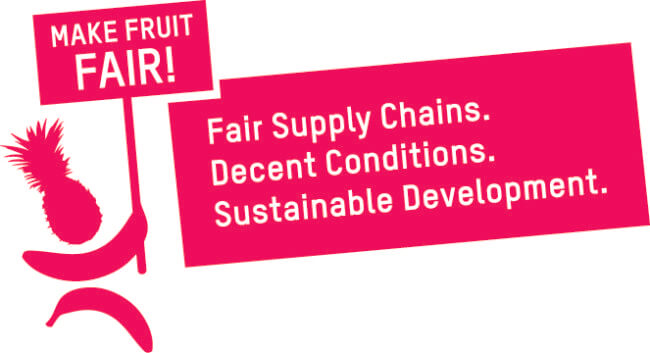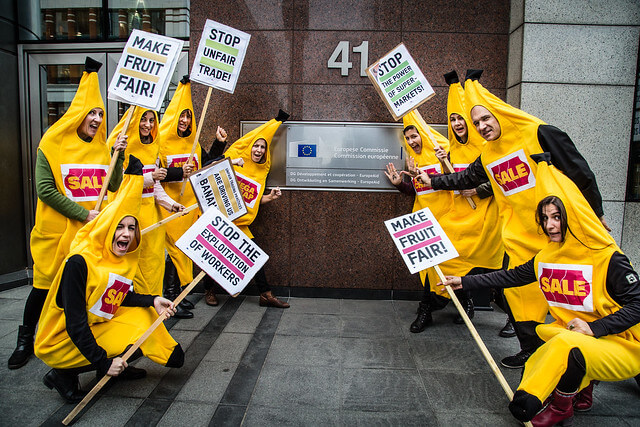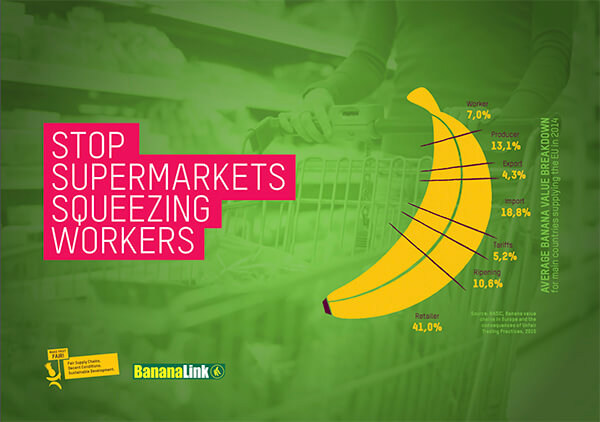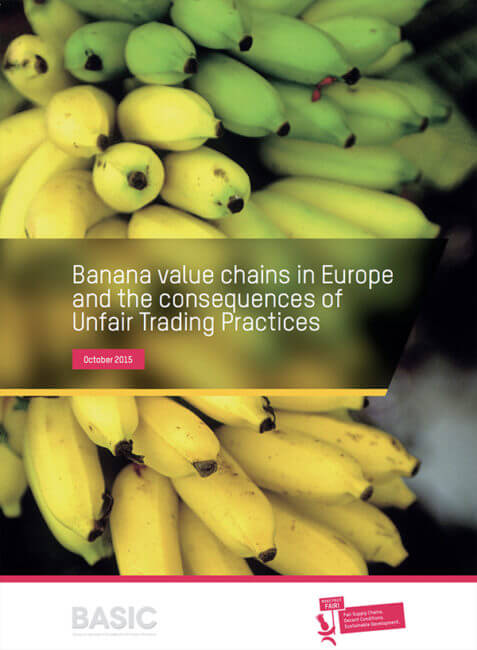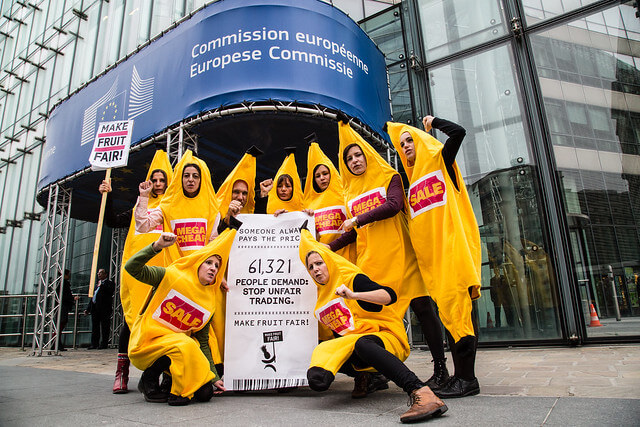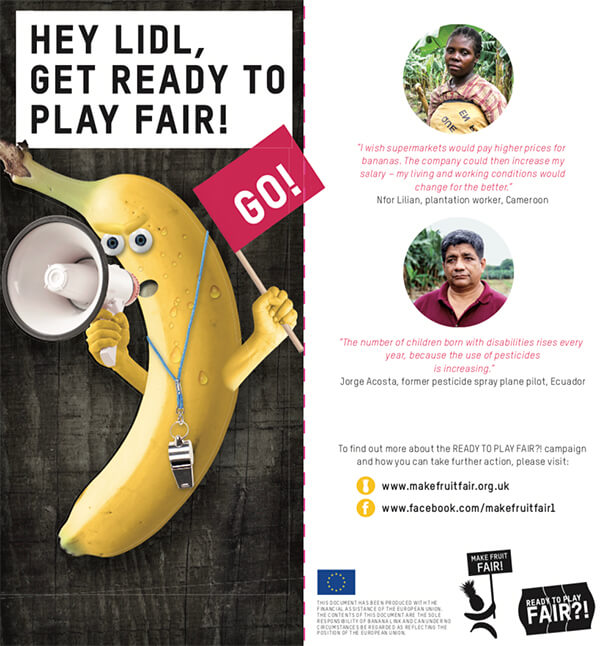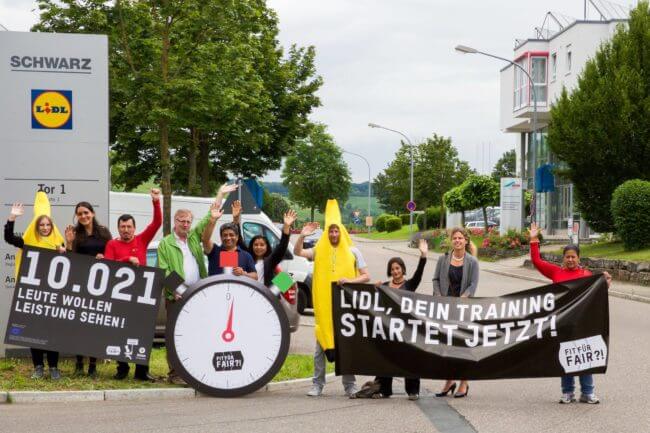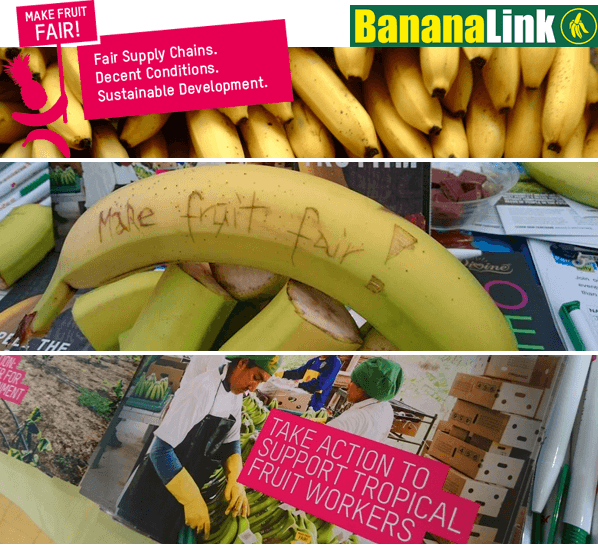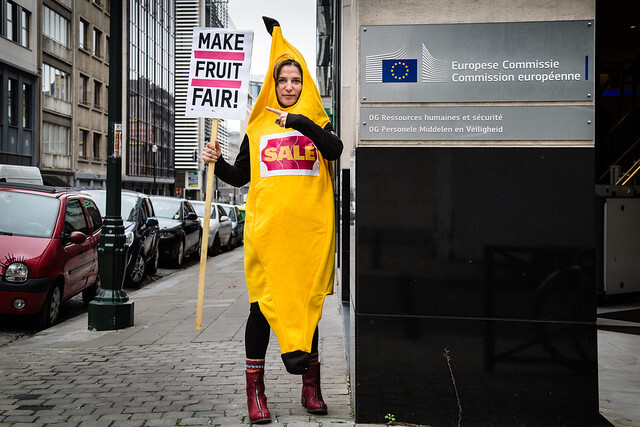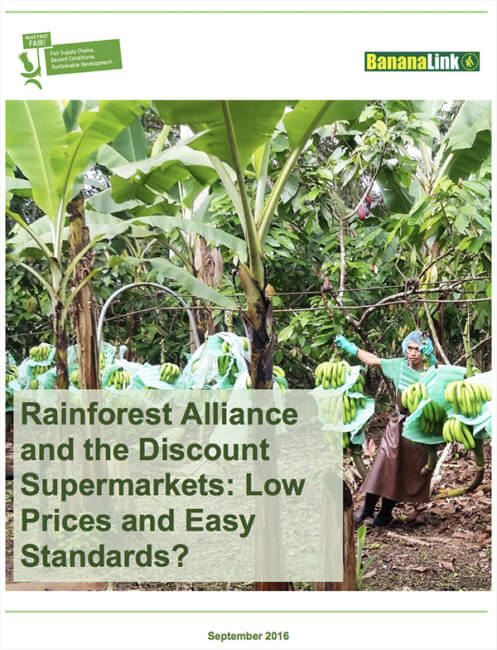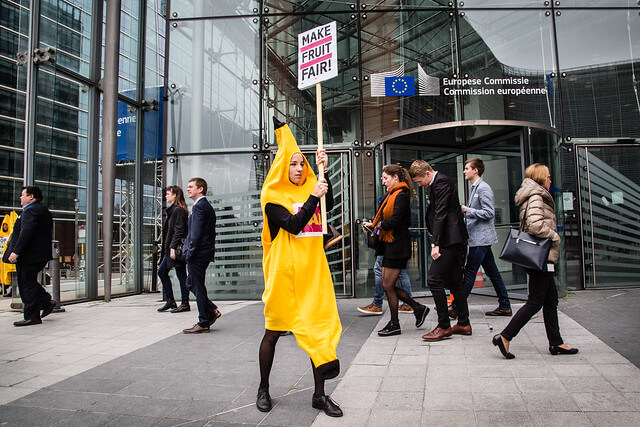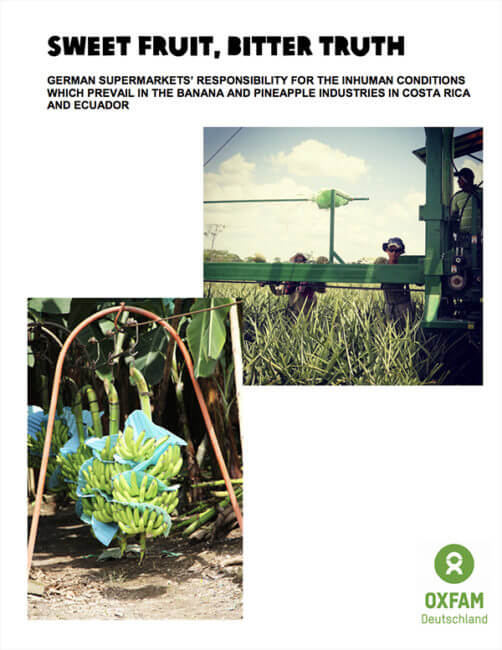Why Campaign About Tropical Fruit?
Between 2015 and 2018, nineteen organisations from across the world came together to campaign to Make Fruit Fair! NGOs from Europe, working in close partnership with small farmer organisations and plantation worker unions from Africa, Latin America and the Caribbean campaigned to improve living and working conditions for the hundreds of thousands of people who grow, pick and pack the tropical fruit that we buy in our shops every day.
Most prominent examples are bananas and pineapples: Bananas are the most traded fruit in the world, grown in more than 150 countries, producing 107 million tonnes of fruit per year. The international pineapple trade is expanding rapidly with one in two pineapples now grown for export.
Violations of labour standards and environmental rights are common in both the banana and pineapple production, as in other tropical fruit production, and in many cases this situation is worsening.
While the Campaign formally concluded in 2018, Banana Link and the other campaign partners continue to campaign under the Make Fruit Fair banner to promote ethical and sustainable practices in tropical fruit supply chains.
The Campaign Was About:
- promoting fair and sustainable tropical fruit supply chains
- defending social and environmental rights in producing countries
- providing a space for Southern voices in producing countries to be heard
- linking producing countries to consumer countries by campaigning together
- encouraging new forms of international trade policies and practices
What Did the Campaign “Make Fruit Fair!” Specifically Ask For?
We wanted supermarkets, as the most powerful actors along the supply chain, to pay fair prices to their suppliers that cover the costs of sustainable production.
We wanted fruit companies and supermarkets to guarantee:
- living wages are paid on the plantations they source from
- equal access for women to employment and training
- respect for human rights, including labour rights, such as the freedom to join an independent trade union
- the environment is respected by reducing toxic agrochemical use
We wanted governments to:
- regulate the abuses of supermarket buyer power
- ensure that companies are held accountable for working conditions in producing countries
- support policies that encourage fair and sustainable fruit production
